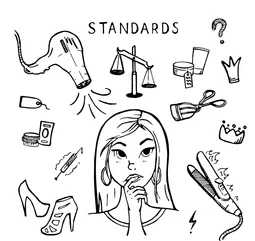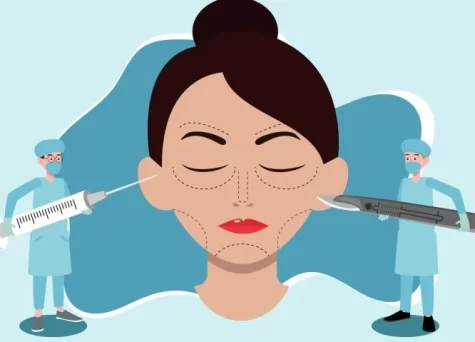The Truth Behind Beauty

Beauty standards in part revolve around the use of a variety of cosmetics on different facial features.
December 11, 2022
Beauty standards today are very surprising. Society expects girls to be thin and have fair skin, a small nose and high cheekbones. Of course not everyone can live up to this standard. Not only is this cruel, it can be deadly.
Unrealistic beauty standards lead girls as young as 14 to getting plastic surgery. Although minor teens can not have plastic surgery without parent permission, this practice still occurs.
Teenagers across the world have battled this unrealistic beauty standard and consequently face mental health issues when they cannot achieve the beauty standard they wish to attain.

These unrealistic beauty standards are not limited to women, but there are cases applying to men as well, just not as commonly.
It has been known for a long time that biased beauty ideals can be toxic, especially for girls. They face body dysmorphia, eating disorders and more. These mental health disorders can all be costly to treat.
Teens tend to relentlessly obsess about their appearance to the point it interferes with relationships, leading to the development of anxiety and depression.
Beauty ideals are everywhere; different cultures have different standards. One of the most extreme of these unrealistic beauty standards comes from South Korea.

The country is notoriously known for its hyper fixation on appearances and cosmetic surgery: small v-shaped faces, light skin, double eyelids and slim bodies.This obsession can highly affect one’s emotional and physical health. In Korean society, attractiveness is considered a priority.
Most people think beauty is harmless, just something to make one feel attractive; however, it is society that decides whether an individual is traditionally attractive or not. In the end, each person needs to face this reality and decide whether they value their own perception over that of another. Do they care what other people think about beauty?





